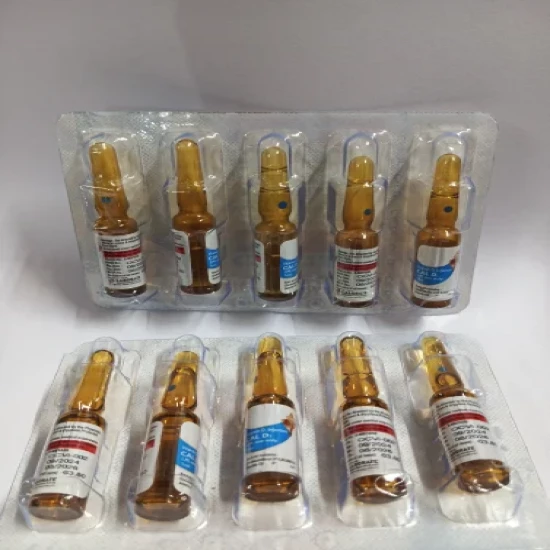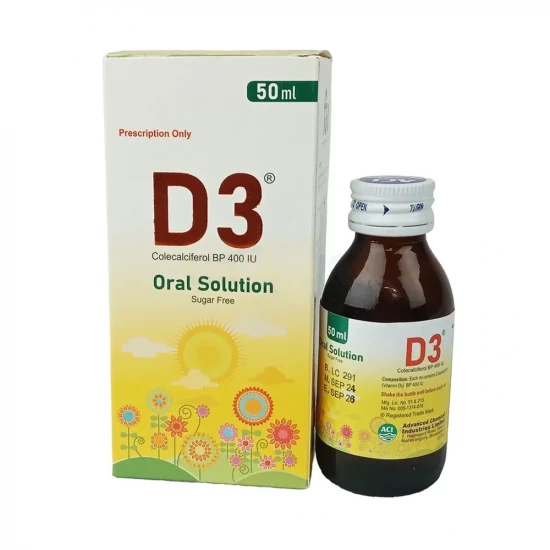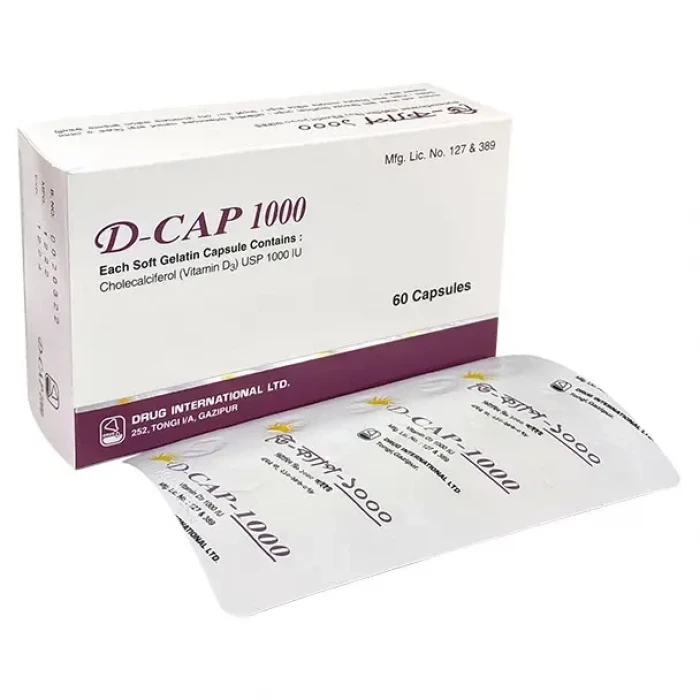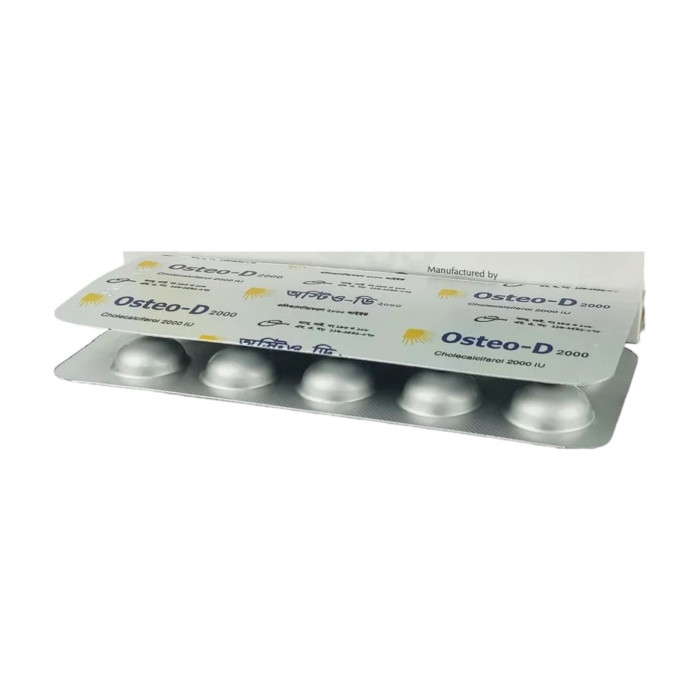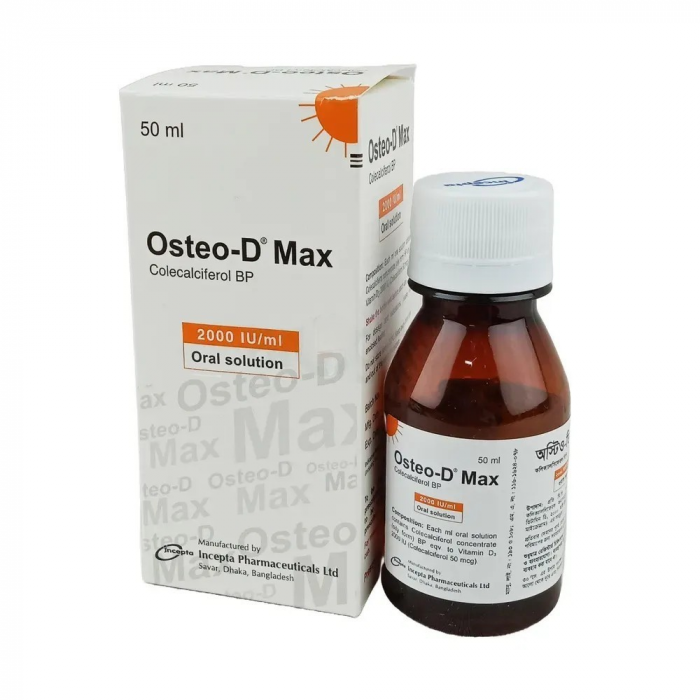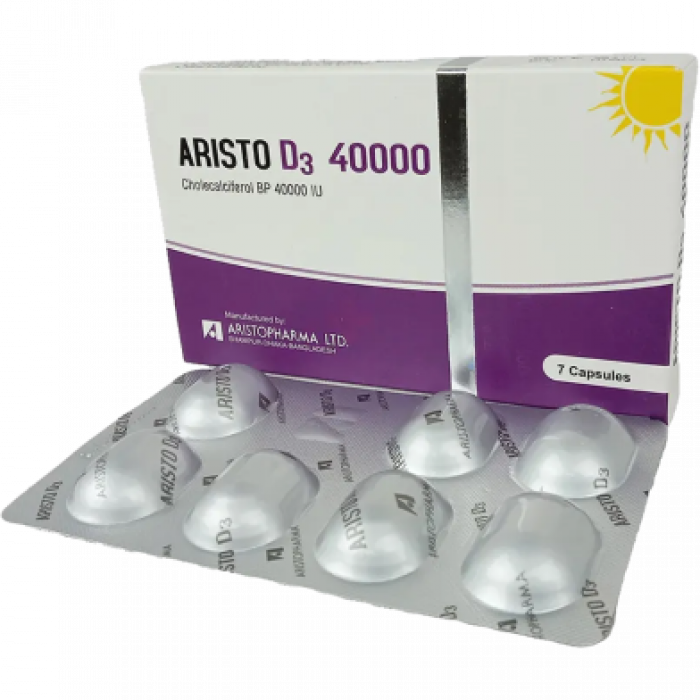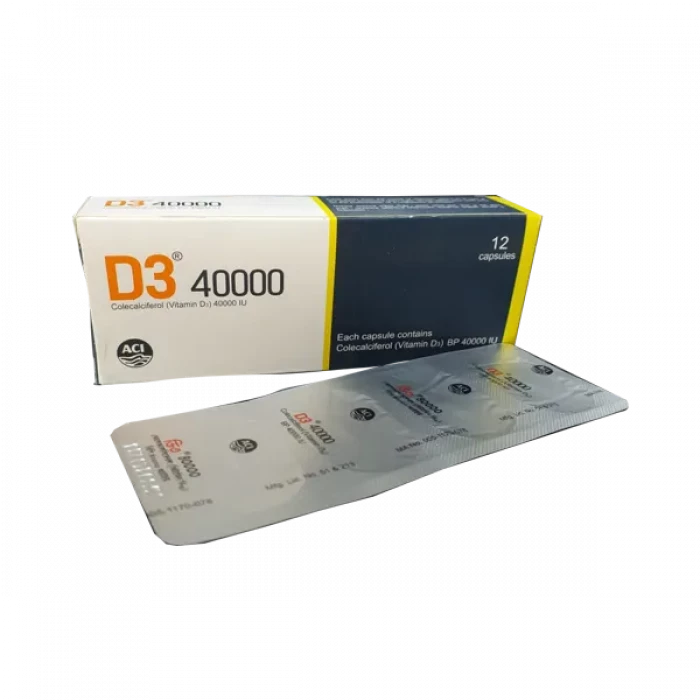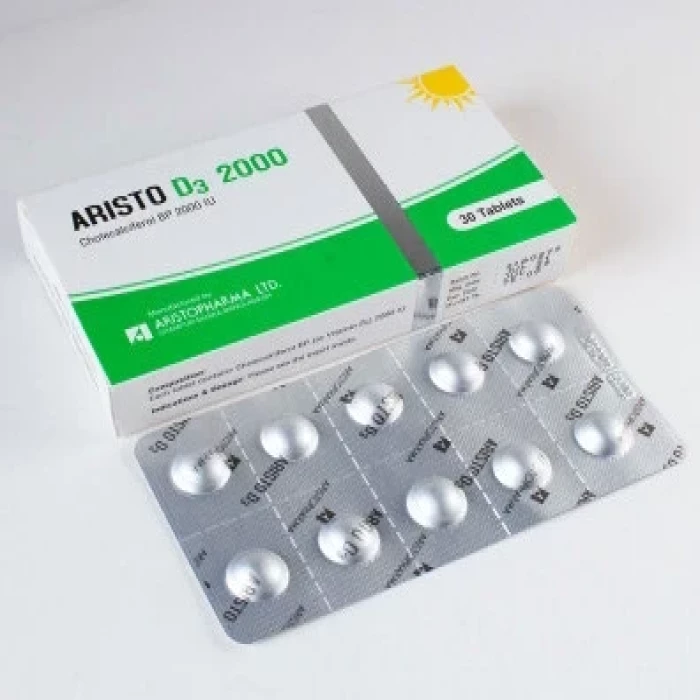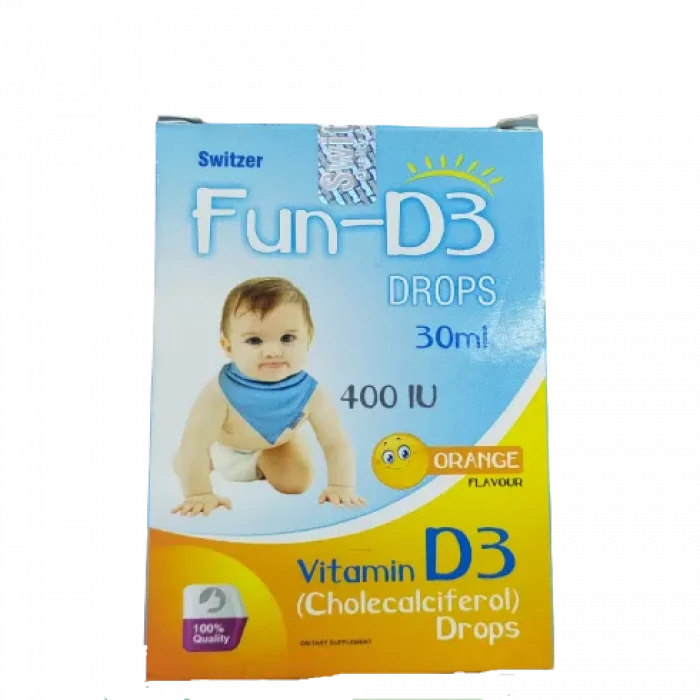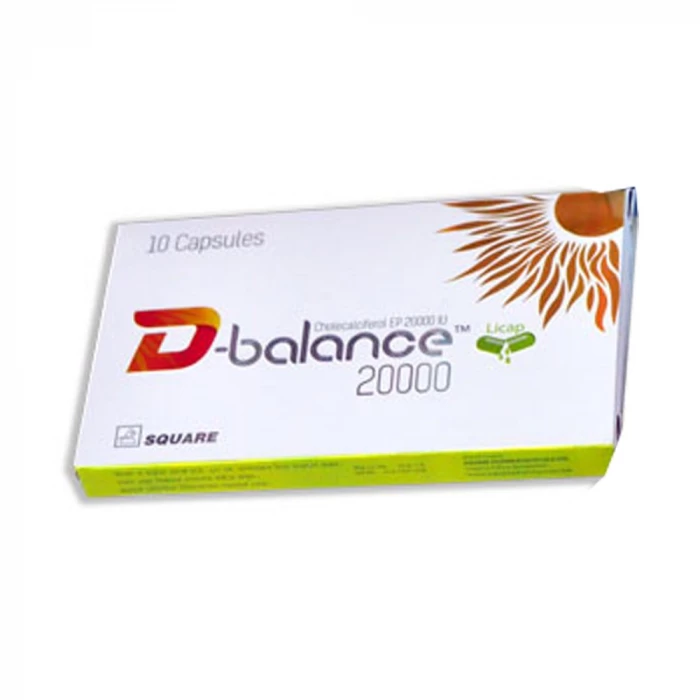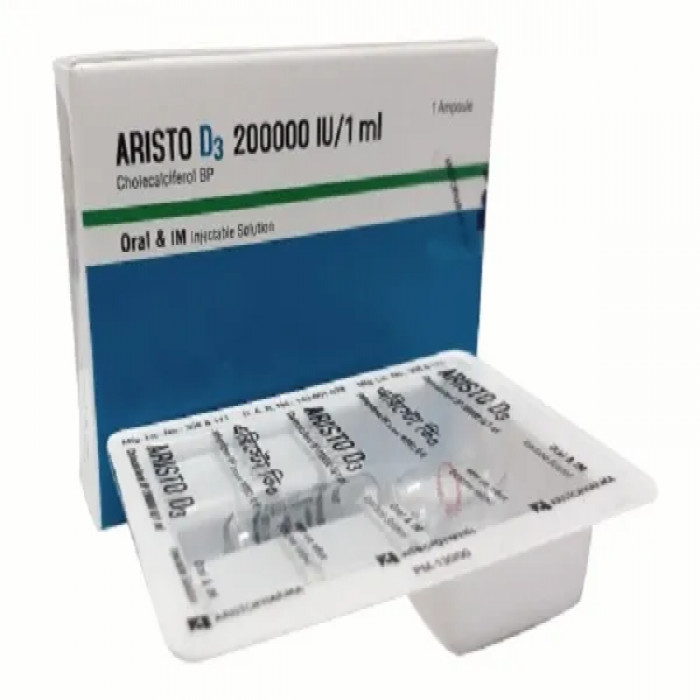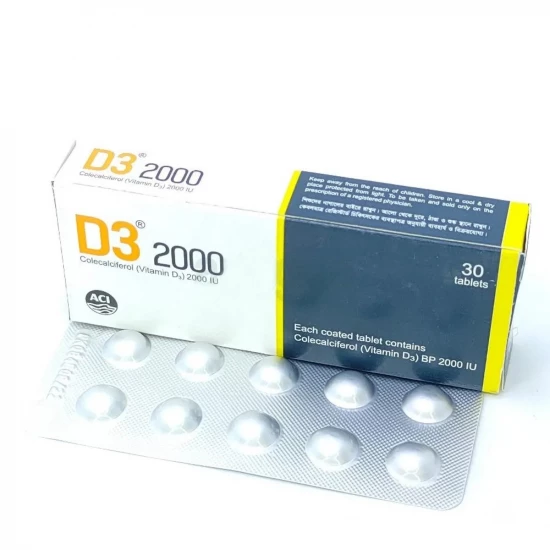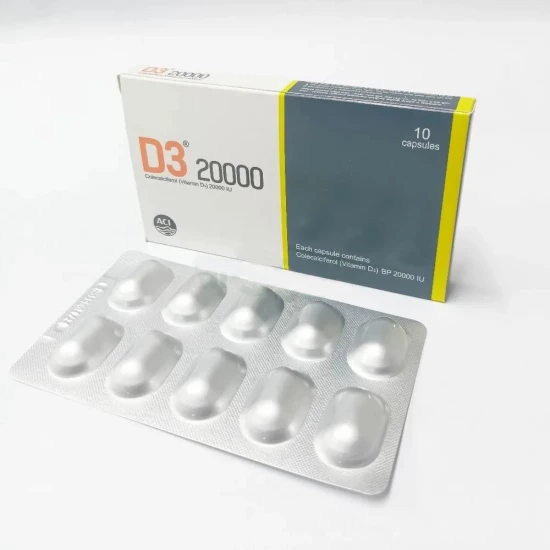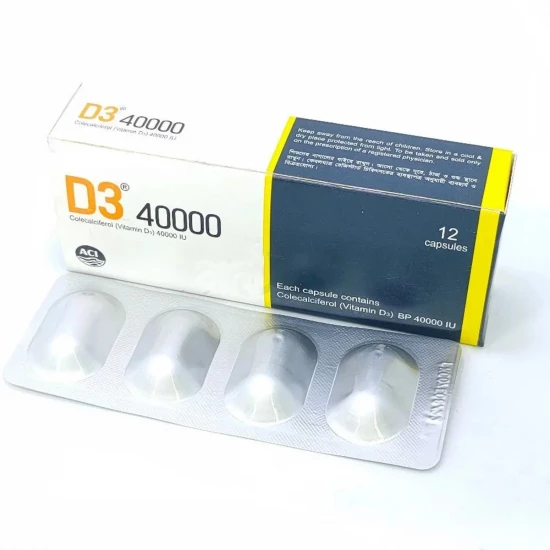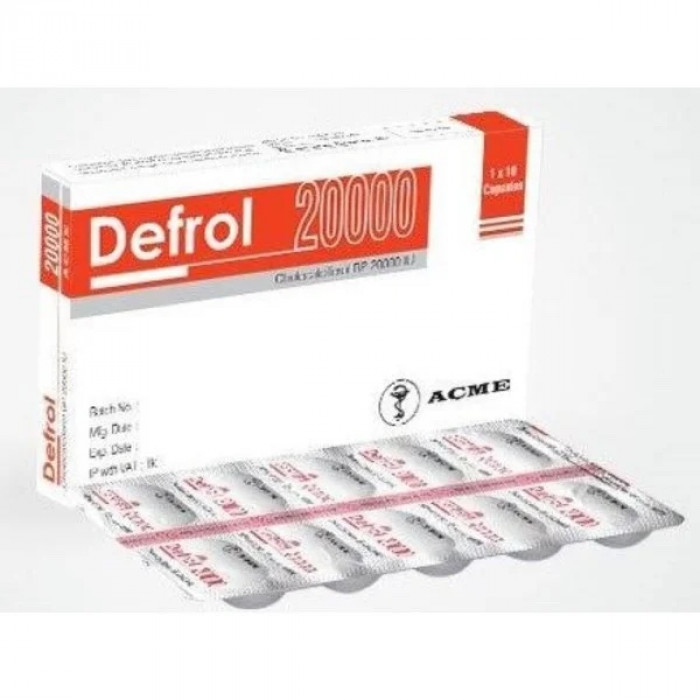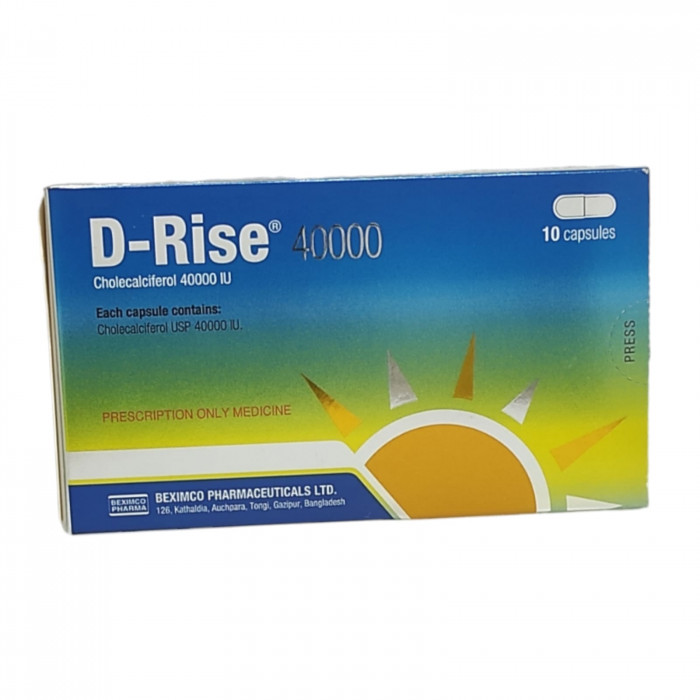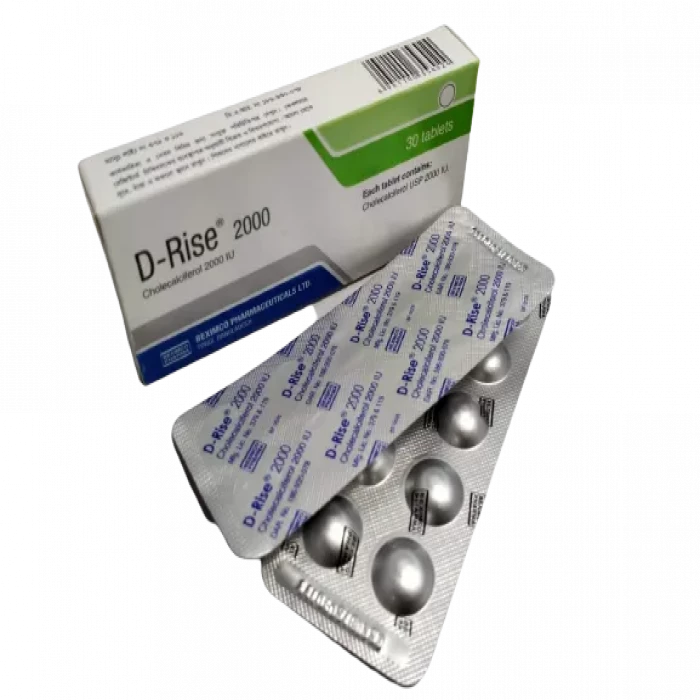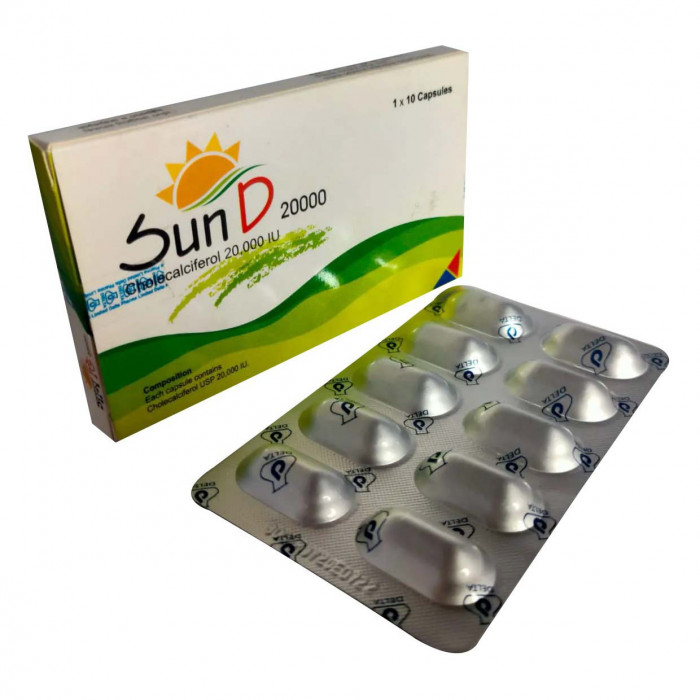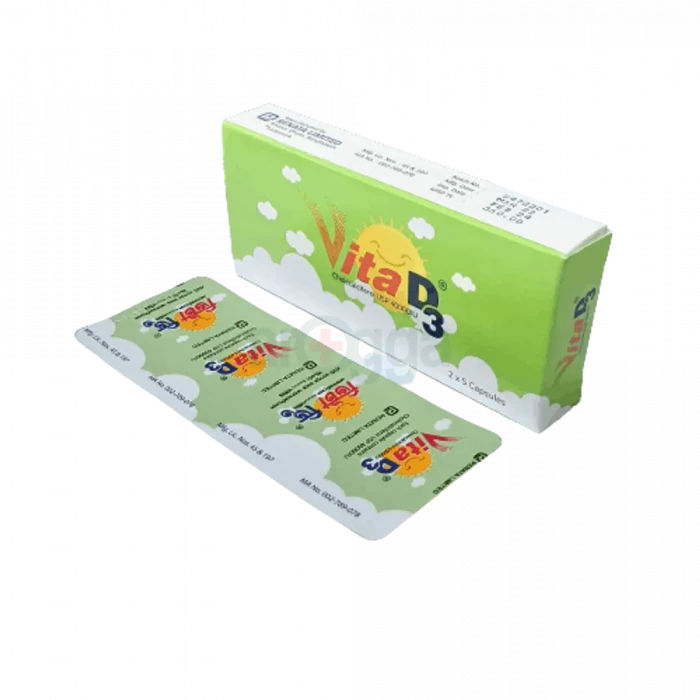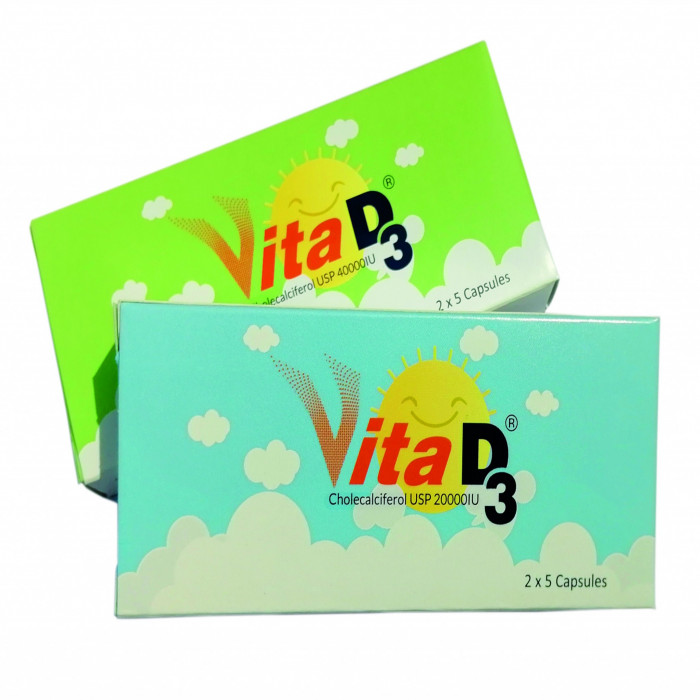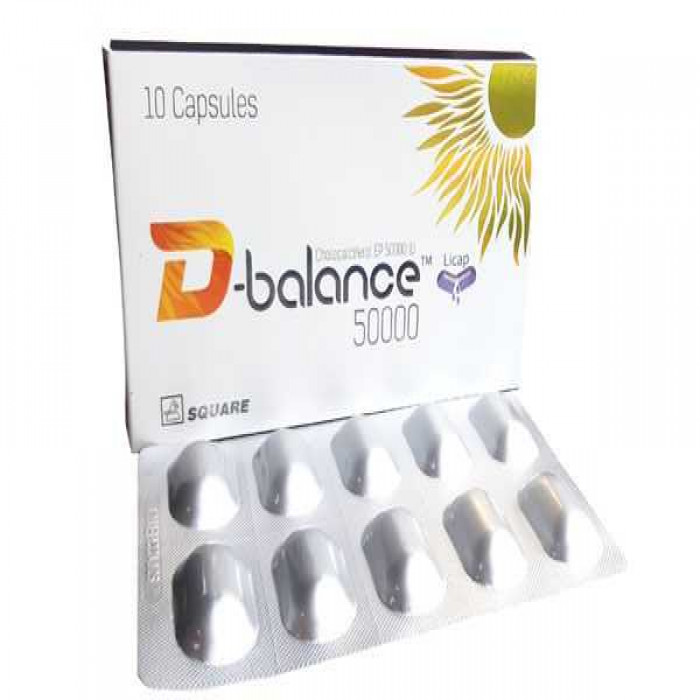
✔ 100% Authentic Product
👁️ Currently Viewing 3669
D-Balance 50000IU Capsule 10pcs
Cholecalciferol is a dietary supplement that is used to treat vitamin D deficiency. It is also used with calcium to maintain bone strength.
Discount
Price: ৳ 384
MRP:
৳
400
4%
Off

100% Genuine Products, Guaranteed

Safe & Secure Payments, Always

Fast, Secure & Efficient Delivery

Proper Packaging
 Cash on Delivery - All over Bangladesh
Cash on Delivery - All over Bangladesh Regular Delivery - 12-24 Hours, Dhaka City* Charge Tk.39-59
Regular Delivery - 12-24 Hours, Dhaka City* Charge Tk.39-59 Regular Delivery - 24-48 Hours, Other Cities* Charge Tk.99-110
Regular Delivery - 24-48 Hours, Other Cities* Charge Tk.99-110
 ফ্রি ডেলিভারিঃ - ৯৯৯ টাকা+ অর্ডারে, ঢাকা
শহরে
ফ্রি ডেলিভারিঃ - ৯৯৯ টাকা+ অর্ডারে, ঢাকা
শহরে ফ্রি ডেলিভারিঃ - ২৯৯৯ টাকা+ অর্ডারে, ঢাকার
বাহিরে
ফ্রি ডেলিভারিঃ - ২৯৯৯ টাকা+ অর্ডারে, ঢাকার
বাহিরে
100% Genuine Products, Guaranteed
Safe & Secure Payments, Always
Fast, Secure & Efficient Delivery
Proper Packaging
 Cash on Delivery - All over Bangladesh
Cash on Delivery - All over Bangladesh Regular Delivery - 12-24 Hours, Dhaka City* Charge Tk.39-59
Regular Delivery - 12-24 Hours, Dhaka City* Charge Tk.39-59 Regular Delivery - 24-48 Hours, Other Cities* Charge Tk.99-110
Regular Delivery - 24-48 Hours, Other Cities* Charge Tk.99-110 ফ্রি ডেলিভারিঃ - ৯৯৯ টাকা+ অর্ডারে, ঢাকা
শহরে
ফ্রি ডেলিভারিঃ - ৯৯৯ টাকা+ অর্ডারে, ঢাকা
শহরে ফ্রি ডেলিভারিঃ - ২৯৯৯ টাকা+ অর্ডারে, ঢাকার
বাহিরে
ফ্রি ডেলিভারিঃ - ২৯৯৯ টাকা+ অর্ডারে, ঢাকার
বাহিরে
✅ Description:
D-Balance 50000 IU, containing cholecalciferol (Vitamin D3), is primarily indicated for the treatment and prevention of Vitamin D3 deficiency. It serves as an adjunct therapy for various conditions such as osteoporosis, osteomalacia, hypocalcemia, tetany, and rickets in patients with Vitamin D3 deficiency. Some forms of cholecalciferol supplements may contain additional ingredients such as peanut or soybean oil, sugar, aspartame (phenylalanine), or certain food dyes. If you have allergies, diabetes, or phenylketonuria (PKU), consult a doctor before using cholecalciferol.
- The dosage and administration of D-Balance 50000 IU vary depending on the age group and the specific condition being treated or prevented. It's available in various forms such as capsules, film-coated tablets, oroflash or chewable tablets, syrup, and injection. Dosage ranges from weekly to monthly regimens, depending on the indication.
- Special precautions should be taken in patients with impaired renal function.
- Overdose can lead to hypervitaminosis D.
- The safety and efficacy of Vitamin D3 in children under 12 years have not been fully established.
- Avoid using cholecalciferol if you have had an allergic reaction to vitamin D or if you have conditions such as hypervitaminosis D (excess vitamin D levels), hypercalcemia (high blood calcium levels), or malabsorption disorders that affect nutrient absorption.
- Inform your doctor about any history of heart disease, kidney disease, or electrolyte imbalances, as these conditions may affect the use of cholecalciferol.
✔️ Uses of D-Balance 50000 IU
Vitamin/Mineral Supplementation
✔️ Pediatric Use:
Do not administer cholecalciferol to a child without medical supervision. The appropriate dosage for children depends on factors such as age, weight, diet, and other medical conditions. Always consult a doctor before giving cholecalciferol to a child.
✔️ Side Effects of D-Balance 50000 IU
Side effects may include hypercalcemia, hypercalciuria, skin rash, pruritus, urticaria, nausea, and abdominal pain.
✔️ Quick Suggestions:
- Treatment and Prevention of Vitamin D3 Deficiency: Administered to correct and prevent deficiencies of Vitamin D3 in individuals.
- Adjunct Therapy for Bone Disorders: Used in conjunction with specific therapies for conditions like osteoporosis, osteomalacia, hypocalcemia, tetany, and rickets associated with Vitamin D3 deficiency.
- Healthy Growth and Development: Essential for normal bone growth and maintenance of bone density, particularly crucial for babies.
- Improvement of Lung Function: Vitamin D3 can improve lung function.
- Reducing Severity of Infections: This may help in reducing the severity of bacterial infections.
- Cancer Prevention: There's evidence suggesting a potential role in reducing the risk of certain cancers such as breast and colorectal cancer.
- Insulin Level Maintenance: Helpful in maintaining adequate insulin levels, particularly in patients with type 2 diabetes.
✔️ Indication
Colecalciferol, commonly known as vitamin D3, is a fat-soluble vitamin crucial for various bodily functions. Its primary role is to aid the absorption of calcium from the gut, thereby promoting bone health and preventing conditions associated with low calcium levels, such as osteoporosis and muscle weakness.
✔️ Pharmacology
- Vitamin D3 helps in the absorption of calcium and phosphorus from the intestines into the bloodstream, ensuring adequate levels of these minerals for bone health and other bodily functions.
- Vitamin D3 is essential for normal bone growth and development, as well as the maintenance of bone density. It works in conjunction with calcium to build and maintain strong bones, thus preventing conditions like osteoporosis and osteomalacia.
- Vitamin D3 has immunomodulatory effects, meaning it helps regulate the immune system's response. It has been shown to reduce the severity of bacterial infections by enhancing immune function.
- Some research suggests that vitamin D3 may improve lung function and respiratory health, potentially reducing the risk of respiratory infections and conditions such as asthma.
- Adequate levels of Vitamin D3 have been associated with a reduced risk of certain cancers, including breast and colorectal cancer. It may play a role in regulating cell growth and preventing the development of cancerous cells.
- Vitamin D3 helps maintain adequate insulin levels and promotes insulin sensitivity, particularly in individuals with type 2 diabetes. Insufficient levels of vitamin D3 may contribute to insulin resistance, a hallmark of type 2 diabetes.
✔️ Dosage & Administration
The dosage and administration guidelines for cholecalciferol (Vitamin D3) vary based on the age of the individual and the specific condition being treated or prevented. Here's a summary of the recommended dosages:
For Capsules:
- Adults:
- Treatment of Vitamin D3 deficiency: 40000 IU once weekly for 7 weeks.
- Maintenance therapy: 1400-2000 IU/day.
- Prevention of Vitamin D3 deficiency: 20000 IU every 4 weeks.
- Addition to specific therapy for osteoporosis: 20000 IU once a month.
- Children (12-18 years):
- Treatment of Vitamin D3 deficiency: 20000 IU once every 2 weeks for 6 weeks.
- Prevention of Vitamin D3 deficiency: 20000 IU every 6 weeks.
For Film-coated Tablet:
- Daily dosage: 1000 IU (1-2 tablets) daily, or as directed by a physician.
For Oroflash or Chewable Tablets:
- Daily dosage: 1000 IU to 2000 IU daily, or as directed by a physician.
For Syrup:
- For patients at risk of cholecalciferol deficiency:
- 0-1 year: 400 IU/day (2 ml).
1 year: 600 IU/day (3 ml).
- For cholecalciferol deficient patients:
- 0-1 year: 2000 IU/day (+50000 IU/week) for 6 weeks.
- 1-18 years: 2000 IU/day for 6 weeks.
For Injection:
- Prevention in infants receiving Vitamin D enriched milk: 1/2 ampoule (0.5 ml) i.e. 1,00000 IU every 6 months.
- Adolescents: 1 ampoule (1 ml) i.e. 2,00000 IU every 6 months during winter.
- Pregnancy: 1/2 ampoule (0.5 ml) i.e. 1,00000 IU from the 6th or 7th month of pregnancy.
- Elderly: 1/2 ampoule (0.5 ml) i.e. 1,00000 IU every 3 months.
- In specific conditions or digestive disorders: 1/2 ampoule (0.5 ml) i.e. 1,00000 IU or 1 ampoule (1 ml) i.e. 2,00000 IU every 3 or 6 months.
- For Vitamin D deficiency: 1 ampoule (1 ml) i.e. 2,00000 IU which can be repeated 1 to 6 months later, as directed by the registered physician.
✔️ Interaction
Potential interactions with medications like phenytoin, barbiturates, glucocorticoids, certain laxatives, actinomycin, and imidazole antifungal agents should be noted.
✔️ Contraindications
Contraindications include hypersensitivity to Vitamin D3.
✔️ Pregnancy & Lactation
During pregnancy and lactation, the use of Vitamin D3 should be carefully monitored and doses adjusted according to the severity of the deficiency and response to treatment. It's generally considered safe up to 4000 IU during pregnancy, and caution should be exercised when prescribing additional Vitamin D3 to breastfeeding mothers.
✔️ Storage Conditions
Storage conditions include keeping the medication below 30º C temperature, being protected from light and moisture, and being out of reach of children.
⚠️Disclaimer:
At ePharma, we’re committed to providing accurate and accessible health information. However, all content is intended for informational purposes only and should not replace medical advice from a qualified physician. Please consult your healthcare provider for personalized guidance. We aim to support, not substitute, the doctor-patient relationship.




